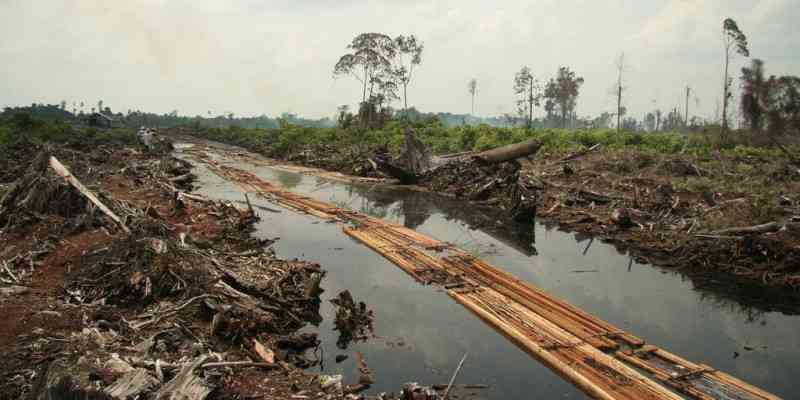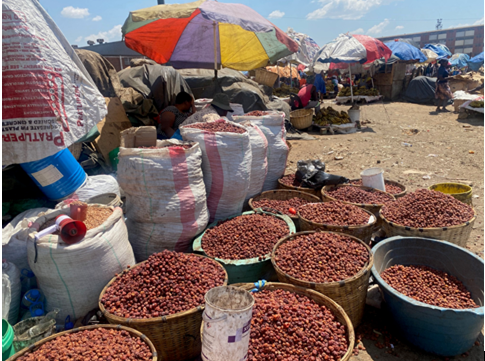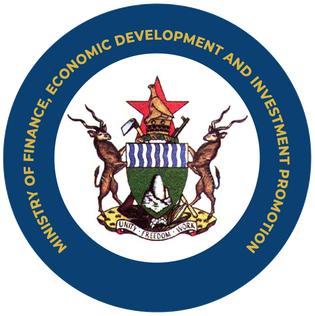
BY KUDZAI KUWAZA There is an existential economic and political crisis in Zimbabwe, which has persisted since before the Government of National Unity (GNU) was established in 2009, a new report says, while proposing a cocktail of measures to extract the southern African country out of the doldrums.
The report, titled Human Development as a Pathway to Transformed and Peaceful Societies: Governance and Development in Zimbabwe, authored by Cyprian Muchemwa and Jaynisha Patel for the Institute of Justice and Reconciliation, looks at how the country has been blighted by poor governance, economic decline and the inequitable distribution of resources.
“Poor governance has led to human development deficits and unequal resource distribution. These matters need to be addressed with urgency if Zimbabwe is to progress towards sustained social cohesion and peace,” the report stated.
The report points out that before the GNU, which comprised Zanu PF and the two then Movement of Democratic Change parties and whose lifespan was from 2009-2013, the country was bedevilled by a crisis characterised by hyperinflation and extreme poverty among other challenges.
“The immense economic challenges incurred from 2000-2008 were characterised by shortages of food, fuel, medicines, jobs, deindustrialisation, hyperinflation, increases in extreme poverty and loss of people’s savings and pensions,” the report noted.
“Towards the end of 2008 the Zimbabwean State had become so incapacitated that it failed to provide essential public goods and services like health, education, social protection, clean water and basic infrastructure. Social protection became non-existent and the combination of unemployment and hyperinflation drove extreme poverty to unprecedented levels.”
The report also notes that despite challenges, the GNU brought about stability during its five-year tenure.
“The GNU working arrangement was not perfect and was frequently mired by infighting over the control of State resources. However, this does not detract from the fact that the quality of governance briefly improved and sound decisions were made as compared to the period before and after GNU,” the report observed.
- Chamisa under fire over US$120K donation
- Mavhunga puts DeMbare into Chibuku quarterfinals
- Pension funds bet on Cabora Bassa oilfields
- Councils defy govt fire tender directive
Keep Reading
“More importantly, the GNU was driven by a solution-seeking orientation, not only in the area of the economy but also with respect to social cohesion.”
However, at the end of the GNU, the report states, there has been rapid deterioration in the standards of living in the country prompted by power struggles within the ruling Zanu PF.
“The end of GNU also changed the governance dynamics to the detriment of the country. From 2013 onwards, the governance dissonance within Zanu-PF had an impact on the economic situation in the country. Between 2014 and 2017, Zanu-PF was factionalised because of succession politics relating to the then ailing President Robert Mugabe,” the report pointed out.
“Factionalism within Cabinet and government bureaucracy paralysed the State’s ability to respond timeously and decisively to arrest the growing economic problems.
“This had a detrimental effect on both human development and social cohesion. It is under these fragile circumstances that a military coup ended Mugabe’s long rule in November 2017.”
After President Emmerson Mnangagwa succeeded the late Robert Mugabe as the country’s leader following a coup in 2017, the country is still mired in a political and economic morass.
“The second republic under President Emmerson Mnangagwa promised sweeping reforms that had the potential to address key development issues like unemployment, inequalities, the trust deficit and poverty. However, after four years under his administration, the country remains politically and economically fragile,” the report noted.
“Heavy-handed State crackdowns on political opponents, demonstrators, civil society activists, journalists and trade union leaders signify a shrinking civil space.”
Under this state of fragility, the potential for human development hangs in the balance. To halt the deteriorating political and economic conditions in the country, the report made several recommendations to government.
These include improving transparency and accountability mechanisms, considering macroeconomic policies that can help finance social safety nets for the informal sector, proper investigation of State officials who abuse their power and participate in corruption related to illegal mining and improving infrastructure and preventing the degradation of water quality.
However, these recommendations are likely to fall on deaf ears as there is no political will to improve transparency and accountability as demonstrated by efforts by Mnangagwa’s attempts to reduce Parliament’s scrutiny on some of the agreements the government enters into.
Clause 23 of the Constitution Amendment Bill (No 2), seeks to amend section 327(3) of the Constitution, to give the Executive exclusive powers to approve loan agreements with foreign non-State institutions or entities without being subjected to parliamentary and public scrutiny.
The amendments violate section 119 of the Constitution, which provides for Parliament to play its role of promoting democratic governance.
The government has always preferred to operate under a veil of secrecy, raising suspicion of underhand dealings which include mortgaging the country’s minerals which has a detrimental impact on the country.
Zimbabweans have become accustomed to announcements of “mega deals” over the years that hardly come to fruition. The opaque nature of the deals has been a breeding ground for corruption and looting.
The dodgy diamond deals in Chiadzwa in which there is significant military interest also exemplify the opaque nature of agreements made by the government and its aversion to transparency.
The report gives a detailed analysis of the three epochs of the country’s political and economic situation which is before, during and after the GNU.
However, lack of political will and partisan interests make it highly unlikely the recommendations of the report will be taken on board.
- Follow us on Twitter @NewsDayZimbabwe











